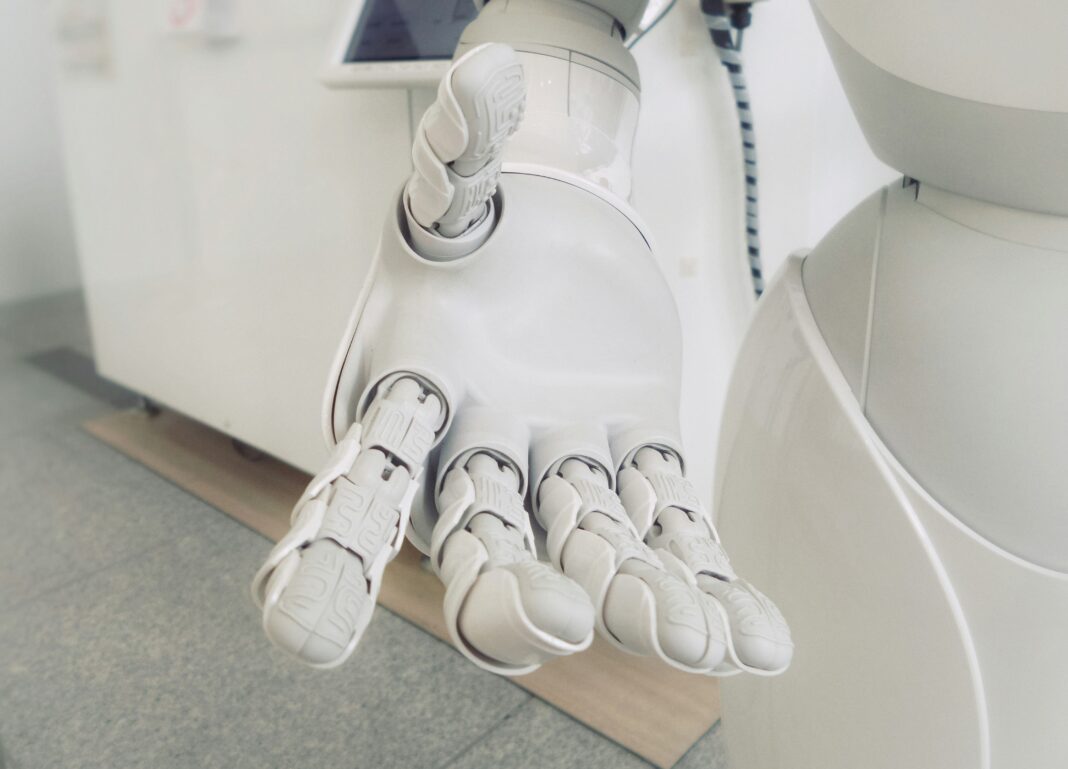“Success in creating AI would be the biggest event in human history. Unfortunately, it might also be the last unless we learn how to avoid the risks.” ~Stephen Hawking
The rise of AI is like watching a sci-fi movie unfold, except we’re all trying to figure out if AI will become our helper or an unforeseen Master. I am sure you’ve seen many things on the wonders of Artificial Intelligence but where there is light, there is also shadow. Artificial Intelligence holds unbelievable promise for improving our lives in vast measures, it also presents challenges and threats that we must address.
Ever wondered what exactly artificial intelligence is and why everyone wants to indulge in it? What is the hype around it, and is it really a threat to humankind? Let’s dive in.
Well, Artificial Intelligence has been tossed around for decades, but it wasn’t until recently that it started gaining attention.
The term “artificial intelligence” was officially used at Dartmouth College, where researchers discussed the probability of creating machines that could mimic human intelligence. In today’s day and age, it isn’t a mere term or concept but an everyday reality for us. AI invades various surfaces of society, reshaping how we work, communicate, and interact with technology.
The appeal of AI lies in its ability to solve problems in previously impossible or impractical ways. AI can automate repetitive tasks, saving time and effort. It’s like having a clever robot buddy that can learn and make your life efficient.
Speaking of robots, AI is far more progressed than just GPT-4. Have you met with the humanoid robot Ameca, which acts as a translator using the OpenAI’s ChatGPT bot, that could potentially extinct human translators? [2]
A well-read research paper that looks further into this is “The Malicious Use of Artificial Intelligence: Forecasting, Prevention, and Mitigation,” published in February 2018. [3] This paper is authored by researchers from the Future of Humanity Institute. It is known for being the Center for the Study of Existential Risk, OpenAI, and others.
It explores the possible negative impacts of Artificial Intelligence if used wickedly. Highlighting situations where AI could be exploited for cyberattacks, disinformation campaigns, and autonomous weapons systems raises significant ethical and security concerns. Here is a series of advancements in Generative Adversarial Networks (GANs) that have created synthetic faces that are becoming increasingly indistinguishable from real ones.

One of the most prominent downsides of AI is mentioned as a personalized attack to extract sensitive information or money from individuals. The rise of facial recognition technology has ushered in a new era of possibilities: an AI tool called Synthesia. This tool can generate human-like voices and AI avatars that could be used in several positive ways, such as making a marketing campaign, making content online, or training videos. However, this AI tool has sparked many concerns about privacy and cybersecurity.
As mentioned in the paper, a phishing attack refers to a cybercrime tactic where individuals or organizations attempt to deceive users into disclosing sensitive information, such as usernames, passwords, credit card details, or other personal data. It also addresses Political, Physical, and Digital Security risks like an individual’s online information used for impersonation and milking their real contacts; cybercriminals can use AI techniques to process payment or ransomware victims.
The research paper discusses the importance of active measures to mitigate the risks associated with the cruel use of AI and the need for disciplinary cooperation among researchers, policymakers, and industry stakeholders to develop safeguards and regulations that ensure AI technologies are deployed responsibly.
A recent article shed light on the unstoppable surge of Generative AI, which showed that approximately 77 percent of devices include AI [4] in some form, like opening your phone with the face ID or ads on social media, to famous digital assistants like SIRI or ALEXA. However, this personalized AI experience raises dual concerns. While 57 percent fear AI may replace humans, [5] 51 percent lack trust in companies to safeguard their data, leading to worries about privacy, security, misinformation, and job insecurities.
Now the lingering question: could Artificial Intelligence defy its creators and dominate humanity, as depicted in movies?
Well, not exactly. The maintenance, power supply, and programming are essential for Generative AI, Robots, and GANs, and all rely on human involvement. Also, Governments, corporations, and individuals each play a role in the development, deployment, and regulation of any form of new research or development.
Corporations innovate through research and development while also obeying regulatory requirements and ethical guidelines. So, it’s safe to say there’s not much to worry about besides some job insecurities. [6]
The strength of Artificial Intelligence depicted in movies is mainly dramatized for entertainment purposes. Whereas Artificial Intelligence might have advanced significantly in recent years, it still operates within the boundaries of its programming and the limitations set by its creators. That said, it’s essential to recognize the potential risks associated with AI development, and these risks must be carefully managed through ethical guidelines and responsible development practices.
But why should we keep up with the advancement of artificial intelligence?
AI has a prominent position now, providing us with a further understanding of our intelligence. The growth of AI is crucial; learning and actively using AI tools is important not just to stay informed by the latest AI but also to form your own opinions on it and identify issues that could form risks towards security or privacy issues.
While challenges and doubts may be linked to the increase of AI, there’s also significant potential for positive impact and growth when approached with careful consideration and practical planning.
In the near future, its implications on society, economy, and governance are key for navigating responsibly and harnessing its potential for the betterment of humanity, and hopefully, stricter laws will be formed around its data storage and usage to safeguard the rights of AI’s users.
REFERENCES:
- P. Sturgeon, “Talent Talk: The Fascinating, Frightening Potential of AI,” Plastics Today, August 14,
- 2023.
- R. Huppke, “Just a quick heads up: AI-powered robots will kill us. K, bye.,” USA Today, 2023.
- S. Farquhar, “Arxiv Papers,” Feburary 2018. [Online].
- A. Cardillo, “How Many Companies Use AI? (New Data),” EXPLODING TOPICS, 2024.
- B. PERRIGO, “Exclusive: U.S. Must Move ‘Decisively’ to Avert ‘Extinction-Level’ Threat From AI,
- Government-Commissioned Report Says,” TIME, 2024.
- M. Roser, “Artificial intelligence is transforming our world — it is on all of us to make sure that it
- goes well,” OurWorldInData.org, 2022.
- F. Ghunaim, “Key Statistics and Trends: The Unstoppable Rise of AI,” SPECTRA, 2023.

Syeda Aliza Waqar is a Bachelor’s student majoring in Computational Math at the University of Karachi. Currently serving as a Science Writing Intern at Scientia Pakistan along with her services in the corporate world, her areas of expertise encompass Computer Science, Artificial Intelligence, Applied Mathematics, and Astrophysics. Aliza aspires to leverage her passion for science communication through her contributions to Scientia Magazine Pakistan.

